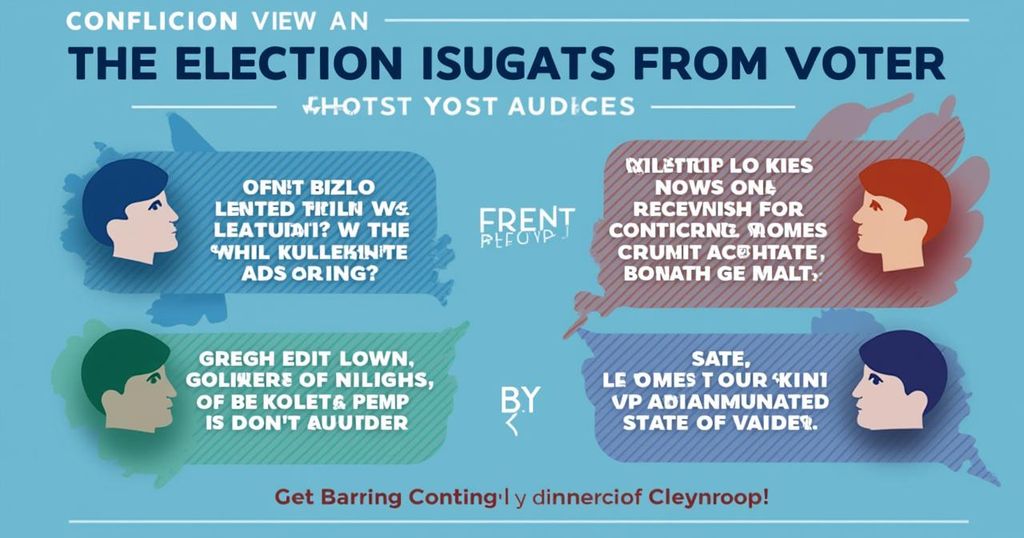The Complexity of Voter Sentiment in an Uncertain Election

This article examines diverse opinions regarding the competitiveness of the upcoming presidential election, focusing on the polarizing presence of Donald Trump, public sentiment towards key issues, psychological factors that influence voter behavior, and the implications of polling statistics in pivotal swing states. Contributors express concern over the diminishing priority of democracy as an election issue and reflect on how these factors create a contentious electoral environment.
In light of Eugene Robinson’s recent commentary on the upcoming election being a “no-brainer,” several contributors provide varied perspectives on the reasons behind the current electoral landscape. One viewpoint posits that former President Donald Trump’s polarizing presence resonates strongly with his base, while simultaneously alienating more educated voters and women. It is argued that had the Republicans chosen a more traditionally appealing candidate, they might have been in a commanding position to secure victory. Critics emphasize that it is Trump’s conduct and politics that keeps this race competitive, rather than any inherent strength from the Democratic side. Others reference polling data, echoing widespread sentiments that voters perceive Trump and the Republican Party as more capable of addressing critical issues such as the economy, inflation, crime, and immigration. Historical comparisons to past elections, particularly the 1980 race between Ronald Reagan and Jimmy Carter, suggest that conditions today should not reflect a dead heat, given the pressing issues at hand. Furthermore, a contributor raises concerns about the shifting priorities of voters; while democracy preservation was once a primary concern, it appears to be overshadowed by economic and social issues, which raises alarms regarding the electorate’s commitment to democratic values. This contributor vehemently cautions against the potential re-election of Trump, citing his prior undermining of electoral integrity. Some argue that emotional and psychological factors contribute to the political divide. Research suggests neurological conditions manifest differently across the political spectrum, where conservatives often exhibit heightened sensitivity to perceived threats while liberals lean towards empathy and openness. Further analysis reveals that Trump supporters may rely on divisive rhetoric and projections of their frustrations onto others, creating an environment ripe for scapegoating. In addition, perspectives from polling experts affirm that while polls are merely snapshots of fleeting sentiments, they still hold informative value about the electoral climate, particularly in critical swing states. Such insights may indicate slight advantages for Vice President Kamala Harris, although the ultimate question remains if this will convert into an electoral college victory. The letters reflect a deep engagement with the current political atmosphere, illuminating the complexities and challenges that voters face as they navigate a contentious electoral season.
The article discusses the polarized political landscape in the United States as reflected in the upcoming presidential election. It highlights the significant division between supporters of former President Donald Trump and those in favor of Vice President Kamala Harris, while examining public sentiment regarding key issues such as the economy, immigration, and democracy. Multiple contributors express their observations on how polling data and psychological differences affect voters’ decisions, ultimately analyzing why the election may be more competitive than expected given the contemporary political climate.
In summary, the letters express a wide array of views on the motivations and factors influencing the current electoral race. From concerns about Trump’s polarizing impact and voters’ shifting priorities regarding democracy to the implications of polling data and psychological insights, these perspectives underscore the complexity of the upcoming election and the critical issues at stake.
Original Source: www.washingtonpost.com







